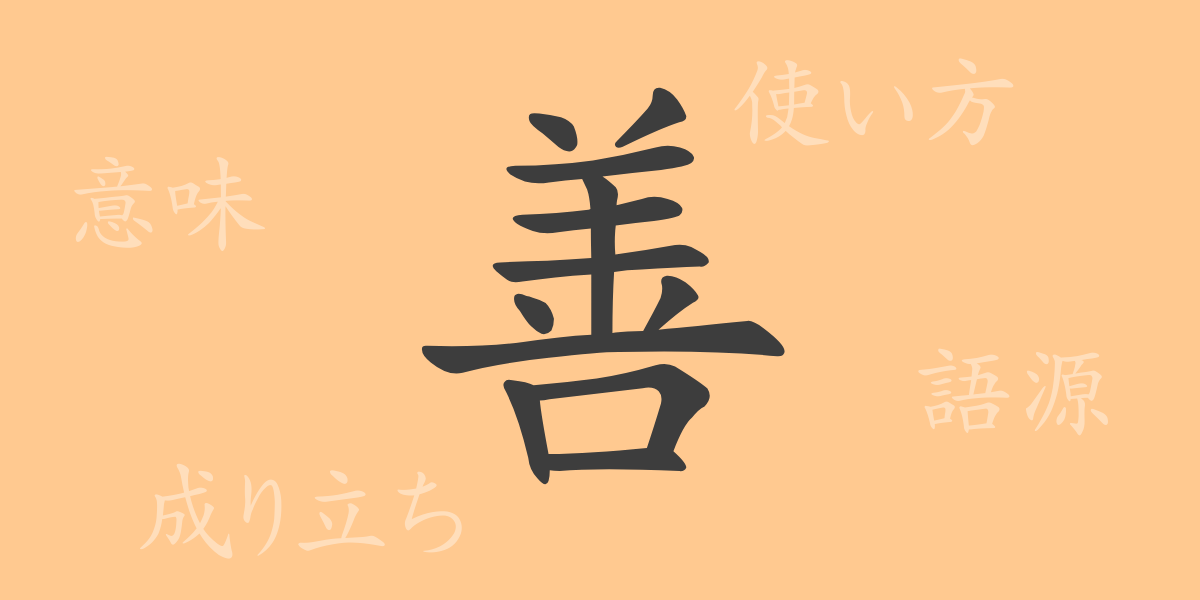The concept of “good,” denoted by the kanji “善” (ぜん), encapsulates actions and qualities that hold positive moral and ethical values. This character embeds the profound depths of human behavioral standards and philosophical thoughts. As a widely used Jouyou kanji in Japan, this article delves into the world of “善,” exploring its origins, contemporary usage, and cultural impact.
Origins of 善
The kanji “善” has its roots in ancient Chinese oracle bone script. Originally depicted by the symbol of a sheep in sacrificial rites, it evolved to represent good deeds and virtues. This evolution reflects the close relationship between religious ceremonies and the concepts of morality and ethics in ancient China.
Meaning and Usage of 善
“善” is used to denote good actions or morally superior states. It generally refers to individual or collective behaviors that positively impact others or society, commonly seen in phrases like “善行” (good deeds) and “善意” (goodwill). In philosophy, it often discusses the concept of good in a positive sense or contrasts it with evil.
Readings, Stroke Count, and Radical of 善
The kanji “善” carries a rich history in its formation and phonetics:
- Readings: On’yomi “ゼン,” Kun’yomi “よい”
- Stroke Count: 12 strokes
- Radical: 口 (くちへん) or mouth
Phrases, Idioms, and Proverbs Using 善
Many idioms, phrases, and proverbs incorporating “善” exist in Japanese, reflecting deeply ingrained values and thoughts. For example, “善因善果” (ぜんいんぜんか) means good causes produce good results, illustrating the principle of karma. In contrast, “善は一里を行く” (ぜんはいちりをいく) suggests that good deeds often go unnoticed yet are inherently valuable, akin to the saying “a good deed is its own reward.”
Conclusion on 善
The single character “善” carries significant weight beyond its literal form, influencing people’s lives across ages and cultures. Through this article, we hope to deepen the understanding and appreciation of “善,” recognizing its enduring value in enriching human interactions and moral contemplations.

























